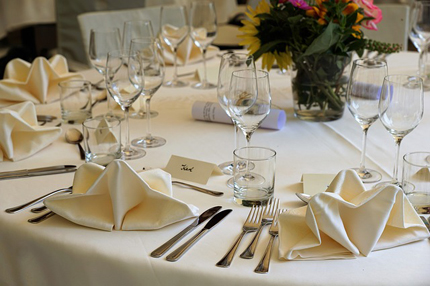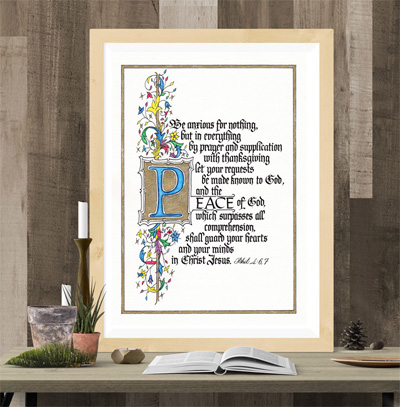As pro-LGBT (lesbian, gay, bisexual and transgender) voices and values grow louder and more insistent in the culture, what about those people of faith who experience same-sex attraction and don’t want it? What are they supposed to do with feelings and desires at odds with their faith? How are they supposed to learn to reconcile their faith and their sexuality?
 The cultural narrative has become, “LGBT represents normal, healthy variations in human sexuality, so everyone should support and celebrate all forms of sexual diversity. And if you don’t, we’re going to punish you, shame you, and squelch your voice.”
The cultural narrative has become, “LGBT represents normal, healthy variations in human sexuality, so everyone should support and celebrate all forms of sexual diversity. And if you don’t, we’re going to punish you, shame you, and squelch your voice.”
Part of the punishing and shaming includes outrage over “Conversion Therapy.” A growing number of states outlaw it. What makes it so bad and why are people so angry about it?
What is Conversion Therapy?
Conversion Therapy is usually defined as therapy designed to change a person’s sexual orientation. But is that what it really is? Therapy is a shortened form of the word “psychotherapy,” which means the treatment given by a licensed mental health professional such as a psychologist or psychiatrist, a social worker, or a licensed counselor. So Conversion Therapy isn’t therapy without a professional counselor of some kind, with the goal of changing someone’s sexual orientation.{1} But do a Google search for organizations being labelled as doing (or even promoting) Conversion Therapy—which will include a number of churches—and you’ll find neither element happening.
Conversion Therapy is the current buzzword that instantly communicates something that smears hate, shame, judgment and probable suicidality in those who undergo it, forced or not. It is not acceptable to say there’s anything wrong or unhealthy about any form of “sexual diversity.” Those that do—for example, anyone who holds to a biblical, traditional view of marriage and sexuality—are labeled as haters, bigots, prudes, outdated . . . and wrong.
Anne Paulk, director of Restored Hope Network, describes it as “an ideological term used by the GLBTQ activist community and their supporters who seek to link compassionate spiritual care and talk therapy with horrible, clearly disreputable practices.”{2}
These “disreputable practices” include stories of some extremists who used torture, pain and punishment to try and exorcise homosexuality from people. Most notably and recently, the movie Boy Erased purports to show the true story of a teenage boy whose parents sent him to a strict camp that left heartbreaking wounds on his soul. (It should also be noted that the producers took a number of creative liberties to produce the most dramatic moments of the film, none of which actually happened per the book.) The cultural narrative lumps extremists with all those engaged in helping those with unwanted homosexuality, painting them all with a broad brush of condemnation.
Helping Those Who Want the Help
A number of ministries and churches actively seek to help those who don’t want their same-sex feelings or their discomfort with their gender. Or, even if they don’t fight against their feelings, they want to live lives honoring to God despite their desires, which means not giving into them. These ministries and organizations neither offer nor promise conversion of homosexual attractions into heterosexual ones. That would be like offering to make someone stop loving chocolate and start loving kale. Not gonna happen, right?
But they can teach what God’s word says about sexuality, discipleship, and living a life pleasing to God. They can help people (note: choose to, not be forced to) submit every area of their lives to the lordship of Jesus Christ, including sexuality. There are many who define and identify themselves by their sexuality; God’s word calls us to define and identify ourselves by our relationship to Him.
Human sexuality is a complex, many-layered issue comprised of a lifetime of experiences, perceptions, habits, and ways of thinking. There’s nothing simple about it. It has also, for every one of us, been impacted by the Fall and the pervading presence of sin.
But Is Change Even Possible?
Ever hear the pejoratively-used phrase “Pray away the gay”? That’s as effective as praying away fat. A prayer like, “Please Jesus make me stop wanting people/things/food I shouldn’t” has never worked because He doesn’t have a magic wand. He says to all those who want to be His disciples, “If anyone wishes to come after Me, he must deny himself, and take up his cross and follow Me” (Matthew 16:24). That means saying no to ourselves and to our flesh, the part of us that operates independently of God. The apostle Paul instructs us in Romans 12:2 to “be transformed by the renewing of your mind. . .” Cooperating with God to renew our mind means submitting our thoughts and habits to Him, “taking every thought captive to the obedience of Christ” (2 Corinthians 10:5). The call to surrender every part of us, including our sexuality, as the way to obey and honor God, is a difficult one, and it takes community. It takes the support of other Christ-followers to walk alongside us, pray for us, speak God’s truth to us, encourage us, challenge us, restore us when we stumble and fall, and help us keep going.
Change is not only possible, it is the mark of things that are alive. And it is the fruit of the gospel. Lasting change comes not from human effort but from supernatural transformation as we surrender to the work of God in our lives. We experience change as we are transformed into the image of Christ (2 Corinthians 3:18). Christlikeness produces change in how we think, what we believe, how we see ourselves and others, our behavior, and finally—like the caboose on a train—our feelings. But there’s no point in trying to change the feelings apart from the rest of the process.
Discipleship is often what’s happening in ministries and churches that are smeared with the label of “Conversion Therapy,” being lied about and attacked by people who can’t abide any position other than their own.
Next time you see the term “Conversion Therapy,” know that it’s not about shutting down bad therapists. It’s about shutting up people who agree with God about sexuality.
1. I am indebted to the amazing Joe Dallas for his crazy-great analysis and tender compassion concerning this issue, particularly this article: joedallas.com/2018/11/13/dances-with-snakes/
2. www.wnd.com/2019/02/ex-gay-leader-jesus-still-transforms-lives/
This blog post originally appeared at blogs.bible.org/engage/sue_bohlin/how_bad_is_this_conversion_therapy_thing
on February 19, 2019.
 The cultural narrative has become, “LGBT represents normal, healthy variations in human sexuality, so everyone should support and celebrate all forms of sexual diversity. And if you don’t, we’re going to punish you, shame you, and squelch your voice.”
The cultural narrative has become, “LGBT represents normal, healthy variations in human sexuality, so everyone should support and celebrate all forms of sexual diversity. And if you don’t, we’re going to punish you, shame you, and squelch your voice.” I couldn’t disagree more. One of the things I most love about being a Christ-follower and a student of the Bible is that Jesus taught that the Kingdom of Heaven was about celebrating! (See Luke 14 and Matthew 22.) Since one of my identities is “God’s Party Girl,” that certainly resonates with me. Jesus continually got in trouble with the religious snobs who didn’t care for His habit of partying with sinners—who then turned into Christ-honoring disciples!
I couldn’t disagree more. One of the things I most love about being a Christ-follower and a student of the Bible is that Jesus taught that the Kingdom of Heaven was about celebrating! (See Luke 14 and Matthew 22.) Since one of my identities is “God’s Party Girl,” that certainly resonates with me. Jesus continually got in trouble with the religious snobs who didn’t care for His habit of partying with sinners—who then turned into Christ-honoring disciples! In the last several months, both of my severely arthritic hips were replaced. In addition to the wonderful blessing that I am out of pain, the surgeries and recoveries were full of lessons pointing me to spiritual truths I am so very thankful for:
In the last several months, both of my severely arthritic hips were replaced. In addition to the wonderful blessing that I am out of pain, the surgeries and recoveries were full of lessons pointing me to spiritual truths I am so very thankful for: Years ago I encountered a word of wisdom: “At the end of our lives, what we will regret is far more about what we didn’t do, than what we did.” And then recently, in a conversation about what “youngers” want to learn from “olders,” a colleague said he wanted to know what we regret so he can learn from our lessons the wiser way (observation) instead of the hard way (personal experience). So I’ve been asking.
Years ago I encountered a word of wisdom: “At the end of our lives, what we will regret is far more about what we didn’t do, than what we did.” And then recently, in a conversation about what “youngers” want to learn from “olders,” a colleague said he wanted to know what we regret so he can learn from our lessons the wiser way (observation) instead of the hard way (personal experience). So I’ve been asking. So I was doing my part, by confessing Psalm 56:3—”When I am afraid, I will trust in You,” and reminding myself of the power of Philippians 4:6-7—”Be anxious for nothing, but in everything by prayer and supplication with thanksgiving, let your requests be made known to God; and the peace of God, which surpasses all comprehension, will guard your hearts and your minds in Christ Jesus.”
So I was doing my part, by confessing Psalm 56:3—”When I am afraid, I will trust in You,” and reminding myself of the power of Philippians 4:6-7—”Be anxious for nothing, but in everything by prayer and supplication with thanksgiving, let your requests be made known to God; and the peace of God, which surpasses all comprehension, will guard your hearts and your minds in Christ Jesus.”